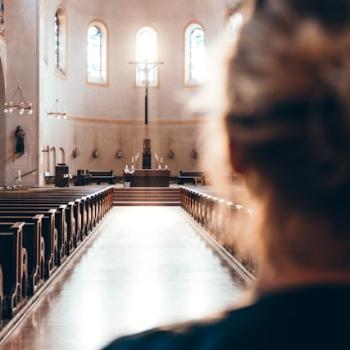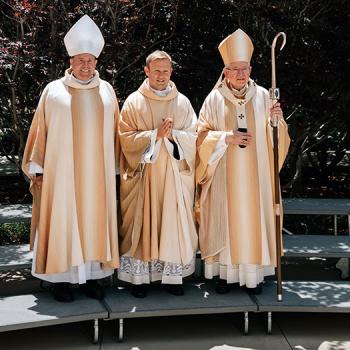Eduardo, when I interviewed you in 2009 in Connecticut, you mentioned wanting to do a film about the Cristeros. Tell me how you got involved in For Greater Glory.
It was because of a friend of mine, Pablo Jose Barroso, the producer. I had talked to him a long time ago about the idea of making a film about the Cristeros war. I had an idea in mind, then he had an idea, and I read a script, he read a script, and there were four or five scripts batting around. Next thing you know he said, "I think I've found it, I'm going to send it to you, let me know if you want to be involved. At that time I was involved in Little Boy and it was hard to be doing two parts at the same time. I agreed to do the part of Anacleto Gonzalez Flores, because it required only about two weeks of my time as an actor. I ran off to Mexico for only a few weeks, did my part, and I came back to finish Little Boy.
This is a powerful film, a very emotional film that not only entertains you, but helps you learn about Mexican history. It tells how in the 1920s, Plutarco Calles, the President of Mexico, started this religious persecution, and created a war on the Catholic Church in which thousands of people died. We want to focus on the Mexican martyrs, who were not afraid to give their lives to defend something bigger than themselves: religious liberty and their families and their faith. No only were they not afraid, but some of them actually died as martyrs and their last words were words of love and forgiveness; that inspired me, and touched my heart and made me want to live like them. That's what I tried to do, every day in my work, to try and imitate these Mexican heroes who gave their very lives to defend their faith.
What impact did the film have in Mexico where, as you mentioned, this part of history was never taught in public schools?
The government, after the war ended, considered it an embarrassment and so they tried to bury that wound and move forward, and that's why they took all that information out of public schools, because they didn't want people to know. I never learned it in school. I asked my friends, "Was I absent that day, when they taught this?" but it wasn't taught. Calles was the guy who founded the party that took over Mexico for more than seventy years. They wanted to protect the founder and bury the wound so no one would know.
But I think they should bring that wound out of the hole of the past, and heal it; that is what history is for, so you can learn from the mistakes of our past and not make them again in the present. It seems like we don't understand, we keep repeating the same mistakes over and over and over. That's why we were involved in this film, to show what happened in Mexico so we can learn from history, and at the same time to be entertained, to be moved, and to be inspired. And that's what this film is trying to do.
Hopefully, many people will watch it, see it, and take the video home. On September 11th, it's going to come in a combo package where you can see scenes that weren't in the movie; there will be a documentary which is going to show you more of the history of Mexico in the 1920s so you can get the whole picture.
Are they talking more about this in Mexico now that this film was so wildly popular there?
I don't know if it's in the educational history program, but they have a documentary, a feature film, lots of articles, and because of the globalization of the Internet and the media, it's very easy just to explore these things and you will find the truth, right there on your computer. I think we should go in and reveal more, so we don't repeat past mistakes; as the government tries to bring God out of our culture, the values and everything, sooner or later, we will collapse.
What impact did making the film have on the other actors in the film, like Andy Garcia and Eva Longoria?
I don't know, I only know about the kid (Mauricio Kuri who played the 13-year-old Jose Luis Sanchez del Rio). I spent some time with him and his family, and he was very touched and moved by the film. I only worked for two weeks; I was in and out and didn't have time to know the other actors, but I am sure, that sooner or later, seeds were planted in our hearts, and it's just a matter of time.
Why did the filmmakers change the circumstances of Blessed Anacleto Gonzales Flores' death?
If you were faithful to every detail like that, it would be a very hard film to watch. If you showed too much, it would be like The Passion of the Christ with blood all over the place. You don't want to show a man stripped naked, hung by his thumbs, having his feet slashed, being tortured for hours. It was important to show that he died for his faith on the camera, in a very dramatic way. If it is too violent people will not watch it. The way the film is right now, people are saying it's too violent, but it's nothing compared to the reality.




